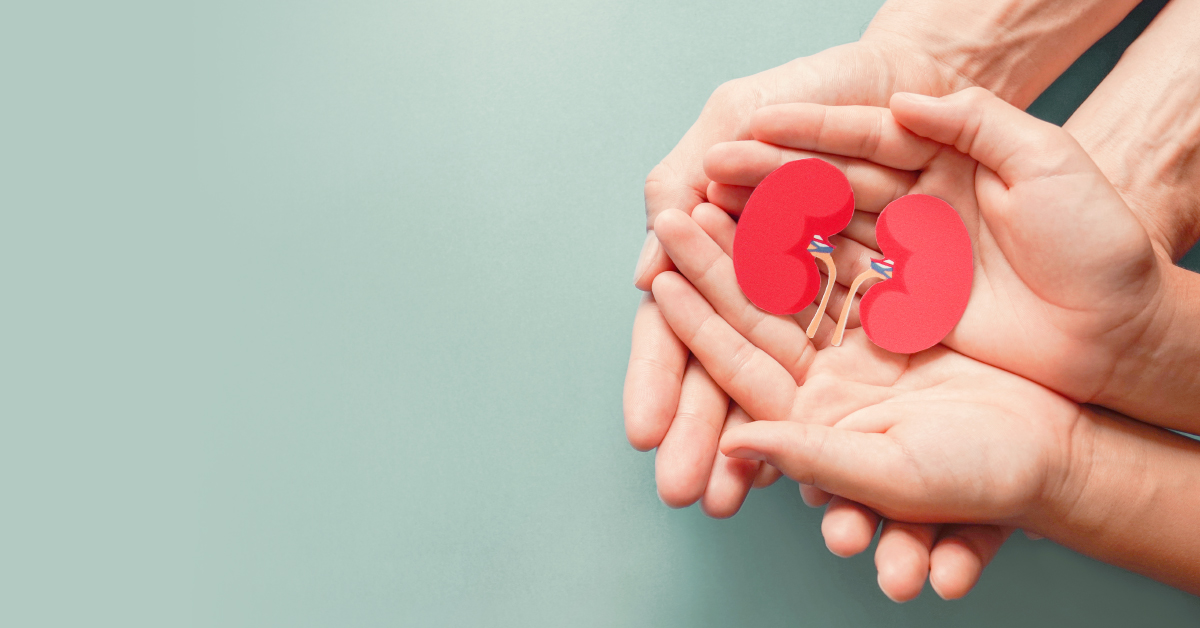March is National Kidney Month

Our kidneys are so vital for our body to function properly that they have an entire month dedicated to them. You guessed right – this month is National Kidney Month.
The entire staff at Physicians Premier would like to raise awareness of having a healthy lifestyle for optimal kidney health. Below are some of the ways you can shield yourself from developing kidney-related disorders like chronic kidney disease and kidney stones.
Why are kidneys so important?
Our kidneys serve as our body’s natural chemical factory, removing excess fluid and waste products from the body through urine.
They perform the following functions:
- Balance and regulate the fluids in the body
- Eradicate waste products, including drugs, from the body
- Release hormones responsible for regulating blood pressure
- Activate vitamin D that keeps the bones strong
- Control red blood cell production
When kidneys do not function well
From the list above, you can tell that our kidneys are very busy organs and perform life-sustaining jobs, so if they are damaged, it inevitably affects the body’s other organs. Below are some of the health problems that are caused by kidney disease.
- Heart attack
- Cardiovascular disease
- Stroke
- High blood pressure
- Anemia
- Nerve damage
- Kidney failure
- Weak bones
Chronic kidney disease
Chronic kidney disease (CKD) is characterized by having some kind of abnormality in the kidney or having decreased kidney function for a period of 3 months or more.
Here are some leading risk factors or causes of chronic kidney disease:
- A family history of kidney disease
- Diabetes
- Being over 60
- High blood pressure
Other risk factors are:
- Alcohol abuse
- Smoking
- Unhealthy lifestyle
Kidney stones
This is the most common kidney disease treated in an emergency room since sufferers experience extreme pain.
Causes of kidney stones
Kidney stones are crystalized calcium deposits that sometimes contain amino acids or uric acids.
They can be caused by a number of factors, including:
- High blood pressure
- Gout
- Dehydration
- Obesity
- Prolonged exposure to high altitude or a hot climate
- High protein diet
- Urinary tract infections
- Being inactive for prolonged periods
- Family history of kidney stones
Symptoms of kidney stones
A typical patient who is diagnosed with kidney stones manifests the following symptoms:
- Presence of blood in their urine
- Lower back pain
- Difficulty urinating
- Heavy sweating
- Burning sensation or pain when urinating
Diagnosis and treatment of kidney stones
Even if your symptoms may indicate that you have a kidney stone, physicians may require you to have additional tests done to determine the location and size of the stone, like ultrasounds, x-rays, and in some cases, a CT scan.
The treatment for kidney stones will largely depend on the size, severity, and location of the stones. Small stones are normally treated with observation and pain medication since they will more likely pass through the urine on their own. Bigger stones may need surgery.
Preventing kidney disease
If you have a high risk of developing kidney disease, remember that prevention is key. Have urine and blood tests done at least once per year and get checked on a regular basis.
Show your kidneys some love by eating a healthy, balanced diet, drinking lots of fluids, exercising regularly, and having an overall healthy lifestyle.
This national kidney month, educate yourself more about good kidney health. The more you know about the disease, the more you will feel confident and in control about making decisions about your lifestyle and overall health.
Sources:
“How Your Kidneys Work,” National Kidney Foundation, https://www.kidney.org/kidneydisease/howkidneyswrk
“CKD Risk Factors and Prevention,” Centers for Disease Control and Prevention, https://www.cdc.gov/kidneydisease/publications-resources/annual-report/ckd-risk-prevention.html
“Kidney Stones,” National Kidney Foundation, https://www.kidney.org/atoz/content/kidneystones
“Kidney Stones,” Mayo Clinic, https://www.mayoclinic.org/diseases-conditions/kidney-stones/symptoms-causes/syc-20355755


